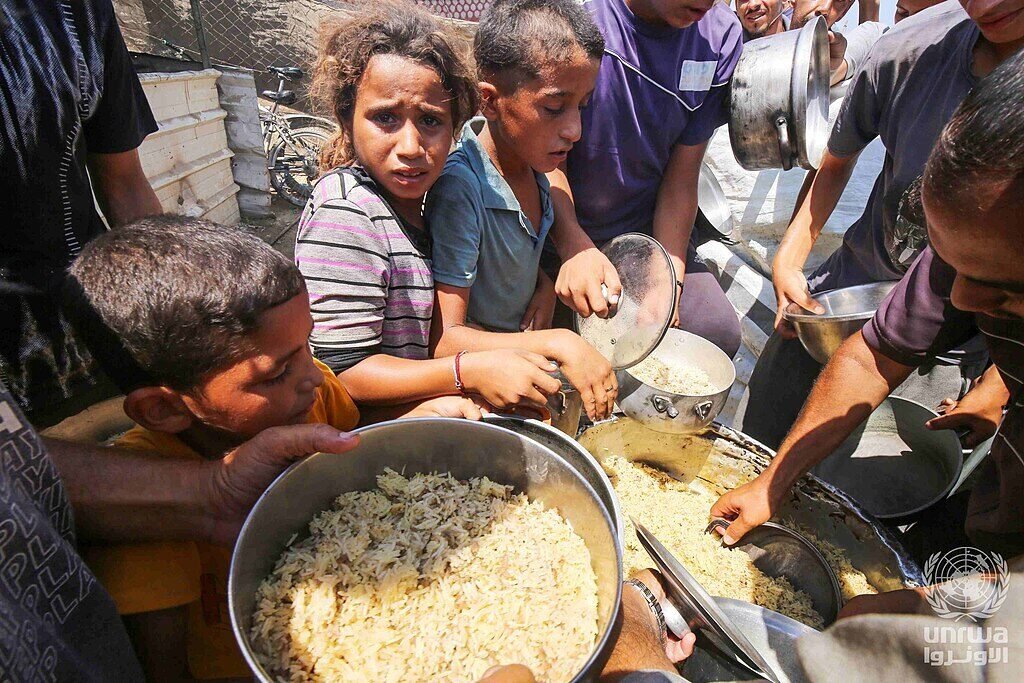Image Copyright:<Ashraf Amra, CC BY-SA 3.0 IGO, via Wikimedia Commons
Gaza Hunger Crisis: Empty Plates and Unheard Cries
No one talks much during dinner in Gaza these days—mostly because there’s nothing to serve. Plates sit empty. Pots are clean not because they were washed, but because they were never used. The Gaza hunger crisis doesn’t just hurt—it humiliates. It makes fathers feel powerless, mothers quietly desperate, and children… old before their time.
People aren’t counting calories—they’re counting hours since their last meal. Sometimes, the only thing keeping someone alive is a piece of stale bread passed between three siblings. And yet, the world keeps spinning. Governments debate. Leaders posture. But in Gaza, life is shrinking under the weight of hunger.
Once a city full of markets, schoolyards, and weddings, Gaza now barely holds itself together. The food crisis in Gaza has wiped out farms. Food trucks are blocked. Aid, when it arrives, is too little, too late, and often too dangerous to reach those who need it most. One woman tried to collect flour—and never came back. Her husband said she was just trying to feed their baby.
Children here know the sound of drones better than lullabies. Some have never seen a piece of fruit. Others believe powdered milk is a luxury. Hospitals, if they’re still standing, run on courage and candlelight. The water is undrinkable. The future? Blurry.
This famine in Gaza isn’t caused by drought or disaster—it’s the result of deliberate choices. Policies and blockades are starving people. This isn’t just a humanitarian emergency. It’s a slow erasure of a population that wants nothing more than to live.
And maybe the worst part? The silence. Because in the midst of this Gaza humanitarian crisis, nothing echoes louder than a world that isn’t listening

